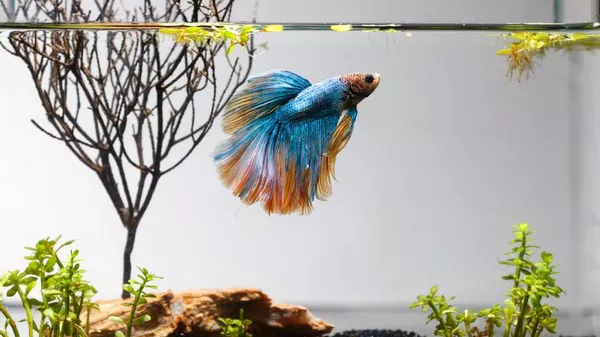Betta fish, also known as Siamese fighting fish, are beloved for their vibrant colors and graceful fins. As with any pet, proper care is crucial to ensure their well-being. One key aspect of betta fish care is their diet. Determining how much should you feed a betta fish is a common concern among enthusiasts. Achieving the right balance is essential to keep these beautiful creatures healthy and happy.
Understanding the Dietary Needs of Betta Fish
Before delving into the specifics of feeding, it’s crucial to understand the dietary needs of betta fish. In their natural habitat, bettas are carnivorous, feasting on small insects and larvae. To replicate their diet in captivity, a high-quality betta fish pellet or flake food should be the primary component of their meals. Live or frozen foods such as brine shrimp and bloodworms can also be included to mimic their natural diet.
Factors Influencing Feeding Frequency
Determining how much should you feed a betta fish involves considering various factors. One crucial factor is the age of the fish. Young bettas, with their higher metabolism, require more frequent feeding than their older counterparts. Additionally, the water temperature and quality, as well as the size of the aquarium, play significant roles in influencing the feeding frequency. Warmer water temperatures generally lead to an increased metabolism, necessitating more frequent meals.
Daily Feeding Guidelines
To answer the question of how much should you feed a betta fish, it’s essential to establish a daily feeding routine. Adult bettas should typically be fed once or twice a day, while younger ones may require three small meals. Overfeeding is a common mistake that can lead to obesity and health issues. As a general rule, offer an amount of food that your betta can consume within 2-3 minutes. Uneaten food can lead to water quality issues, so it’s crucial to avoid excessive feeding.
Monitoring Behavioral Cues
Observing your betta’s behavior can provide valuable insights into their feeding requirements. If your betta is consistently begging for food, it might be an indication that you are not meeting their nutritional needs. On the other hand, if your betta seems uninterested in food or displays lethargy, it could be a sign of overfeeding or an underlying health issue. Adjust the feeding regimen based on your betta’s individual behavior and needs.
Tailoring Portion Sizes to Individual Bettas
Every betta fish is unique, and their dietary requirements can vary. Tailoring the portion sizes to the individual needs of your betta is essential for their optimal health. Some bettas may be more active and require larger portions, while others may have a slower metabolism and need smaller, more frequent meals. Experimenting with portion sizes and closely monitoring your betta’s response can help you determine the perfect balance for their specific needs.
Considerations for Live and Frozen Foods
Live and frozen foods, such as brine shrimp and bloodworms, can be excellent supplements to a betta’s diet. However, these should be offered in moderation. Including these foods 1-2 times a week can add variety and essential nutrients to their diet. It’s important to note that live foods can carry the risk of parasites or diseases, so ensuring their source is reliable is crucial. How much should you feed a betta fish when supplementing with live or frozen foods? Again, moderation is key to prevent overfeeding.
Feeding during Breeding and Growth Phases
During breeding or growth phases, bettas may have increased nutritional requirements. How much should you feed a betta fish during these periods? For breeding pairs, a more frequent feeding schedule with high-quality foods, including live or frozen options, can support the energy demands of the process. Young bettas, especially those in the growth phase, may require more frequent and slightly larger meals to support their development.
The Importance of Regular Fasting
In the quest to determine how much should you feed a betta fish, it’s crucial to recognize the significance of regular fasting. Bettas, like many animals, benefit from occasional fasting periods. Skipping a meal once a week can help prevent obesity and digestive issues. Fasting mimics the natural feeding patterns bettas experience in the wild, promoting overall digestive health and preventing complications associated with overfeeding.
Conclusion
In conclusion, understanding how much should you feed a betta fish involves careful consideration of various factors. Establishing a balanced feeding routine, monitoring behavioral cues, and tailoring portion sizes to the individual needs of your betta are key elements of successful betta fish care. By providing a nutritious and varied diet, along with occasional fasting, you can ensure that your betta fish thrives in their aquarium environment.
Related Topics:
How Long Do Betta Fish Live? (8 Major Factors)
How Often Should You Feed a Betta Fish: Complete Diet Explained
Do betta fish need darkness to sleep?


























